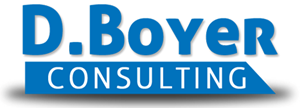Business is mostly conducted via email or phone communications.
Office hours 10:00 a.m. to 6:00 p.m, Mon. - Thurs., and 10:00 a.m. to 2:00 p.m. on Fridays.
SEND EMAIL INQUIRIES DIRECTLY TO:
Dawn.Boyer@me.com
Business is mostly conducted via email or phone communications.
Office hours 10:00 a.m. to 6:00 p.m, Mon. - Thurs., and 10:00 a.m. to 2:00 p.m. on Fridays.
SEND EMAIL INQUIRIES DIRECTLY TO:
Dawn.Boyer@me.com
Business is mostly conducted via email or phone communications.
Office hours 10:00 a.m. to 6:00 p.m, Mon. - Thurs., and 10:00 a.m. to 2:00 p.m. on Fridays.
SEND EMAIL INQUIRIES DIRECTLY TO:
Dawn.Boyer@me.com
Job Fairs – Still Useful to Attend – Part 3
November 15th, 2011 by Dawn Boyer
Are attending job fairs still useful for employers and job seekers in this electronic age of resume posting? (Part Three – Advantages for Job Seekers)
Part one imparted knowledge about why employers attend job fairs; part two related what to do productively at a job fair, and this article will tell you what to do after you leave.
Several actions should be performed at a job fair in part two of this series. Now here’s advice for after the job fair. These follow-up actions provide tools and advantages other job seekers won’t know to use. These tips are valuable whether you attend a job fair locally or drive to another state to attend a huge or broadly advertised event. The tips in part two are noted below with an explanation of the ‘why’ for the next step(s).
Ask for names within the company; if you know anyone in the company – ask about them, their health, how you can get in touch with them:
- Start searching the Internet and social network sites like LinkedIn before the job fair to see if you can find a name of a person working in the company and their department – use that name to ask if “John Doe” has any jobs in their department requiring your capabilities not yet posted.
- If you get a name from the job fair rep, perform a Boolean search on the Internet (and LinkedIn) for that contact in HR, recruiting, or other departments to contact directly to forward your resume.
- If the POC other than HR gets a resume, there is a higher likelihood the person will forward it to HR, which may be perceived as a (employee) referral – especially if the company provides referral bonuses.
Get a business card from everyone in the room:
- Your job at a job fair is to find POC’s – pick up a card at each table.
- Once you get those business cards, mail your resume and a cover letter to each employer POC via snail mail, thanking them for the opportunity to discuss their company and potential job openings.
- They won’t remember you, but that’s okay – they have your hard copy resume and cover letter in hand now. They may look at it for further consideration.
- Since they have an extra printed copy now, and you noted in the cover letter you have already posted to the company’s online job site, they may be inclined to forward the package via inter-office mail to a hiring manager who may have an interest in your capabilities.
Research every company by picking up company information you will need later:
- Option 1: This is one of the richest sources of finding POC information within a company – there may be a name for a CEO, VP, or program manager or addresses for work sites, where you can send notes and resumes directly.
- Option 2: Send polite thank you notes on the professionalism of the job fair rep and you wanted the executive to be aware. The executives may show the job fair rep the note. Of course the rep will want to look your profile up in the recruiting system to see who said that nice thing about them – boom – you and your credentials are now under their noses and they are reading your resume.
Talk to other attendees – if someone notes they are leaving XYZ company – there’s going to be a job opening soon:
- Some job seekers are looking to move upward to higher career levels. If you are waiting in a job fair line, start up a friendly conversation with the next person – Are they leaving a company? Is their contract ending? Where did they work before? Who did they work for (“…I think I remember someone who used to work for XYZ – what is your bosses’ name…”)? You might hit a gold-mine – if a program assistant is now looking for a program manager job because they need to move on and make more money – and now you know the name of the company and what supervisor to send your resume to. That employer will need to fill a job quickly.
Readers Comments
Job Fairs – Still Useful to Attend – Part 3
November 15th, 2011 by Dawn Boyer
Are attending job fairs still useful for employers and job seekers in this electronic age of resume posting? (Part Three – Advantages for Job Seekers)
Part one imparted knowledge about why employers attend job fairs; part two related what to do productively at a job fair, and this article will tell you what to do after you leave.
Several actions should be performed at a job fair in part two of this series. Now here’s advice for after the job fair. These follow-up actions provide tools and advantages other job seekers won’t know to use. These tips are valuable whether you attend a job fair locally or drive to another state to attend a huge or broadly advertised event. The tips in part two are noted below with an explanation of the ‘why’ for the next step(s).
Ask for names within the company; if you know anyone in the company – ask about them, their health, how you can get in touch with them:
- Start searching the Internet and social network sites like LinkedIn before the job fair to see if you can find a name of a person working in the company and their department – use that name to ask if “John Doe” has any jobs in their department requiring your capabilities not yet posted.
- If you get a name from the job fair rep, perform a Boolean search on the Internet (and LinkedIn) for that contact in HR, recruiting, or other departments to contact directly to forward your resume.
- If the POC other than HR gets a resume, there is a higher likelihood the person will forward it to HR, which may be perceived as a (employee) referral – especially if the company provides referral bonuses.
Get a business card from everyone in the room:
- Your job at a job fair is to find POC’s – pick up a card at each table.
- Once you get those business cards, mail your resume and a cover letter to each employer POC via snail mail, thanking them for the opportunity to discuss their company and potential job openings.
- They won’t remember you, but that’s okay – they have your hard copy resume and cover letter in hand now. They may look at it for further consideration.
- Since they have an extra printed copy now, and you noted in the cover letter you have already posted to the company’s online job site, they may be inclined to forward the package via inter-office mail to a hiring manager who may have an interest in your capabilities.
Research every company by picking up company information you will need later:
- Option 1: This is one of the richest sources of finding POC information within a company – there may be a name for a CEO, VP, or program manager or addresses for work sites, where you can send notes and resumes directly.
- Option 2: Send polite thank you notes on the professionalism of the job fair rep and you wanted the executive to be aware. The executives may show the job fair rep the note. Of course the rep will want to look your profile up in the recruiting system to see who said that nice thing about them – boom – you and your credentials are now under their noses and they are reading your resume.
Talk to other attendees – if someone notes they are leaving XYZ company – there’s going to be a job opening soon:
- Some job seekers are looking to move upward to higher career levels. If you are waiting in a job fair line, start up a friendly conversation with the next person – Are they leaving a company? Is their contract ending? Where did they work before? Who did they work for (“…I think I remember someone who used to work for XYZ – what is your bosses’ name…”)? You might hit a gold-mine – if a program assistant is now looking for a program manager job because they need to move on and make more money – and now you know the name of the company and what supervisor to send your resume to. That employer will need to fill a job quickly.














